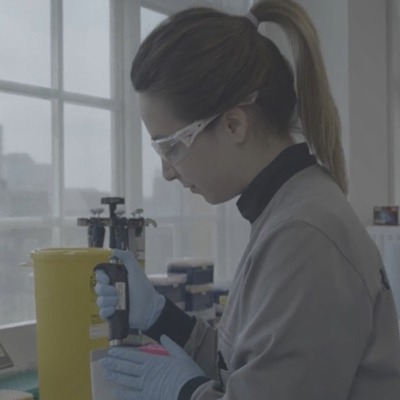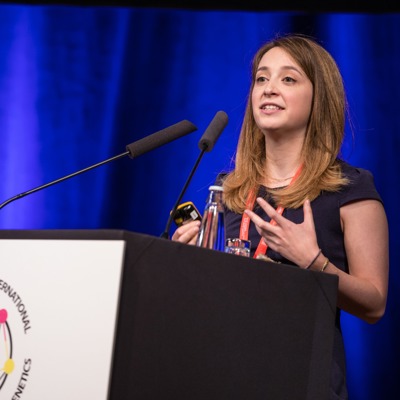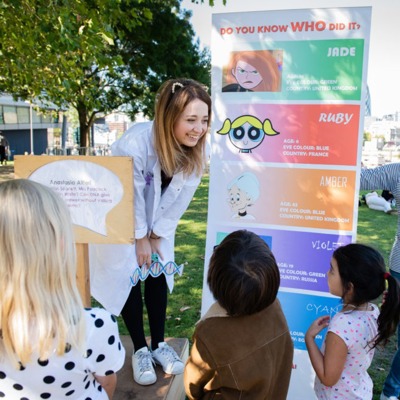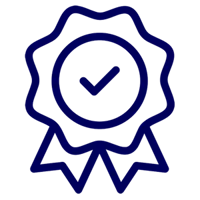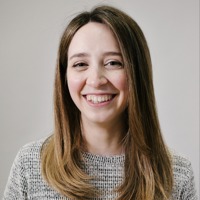
Anastasia Aliferi
Postdoctoral Research Associate at King's College London
Everyone has their own path, don't compare yourself to others!
About Anastasia...
Who am I?
"Quality Controller - I have always been a stickler for details and I believe that I have a strong sense of justice. Attention to detail and strong ethics are crucial for my work in forensics, so being a quality controller is part of the job! When it comes to helping the police solve serious crimes there is not much room for error, so I need to make sure my methods work perfectly and no injustice will come as a result of my work.Manager - As a researcher in forensics I also have to work well with my team, understand everyone's needs and timings and make sure we all work efficiently to meet our deadlines that are usually pretty tight - crimes need to be solved quickly! In that sense I also have to play the role of the manager sometimes, although I definitely still have a lot to learn. Luckily I work with some amazing people that have a lot to teach me!Coach - I love solving problems and getting creative, although I am still working on being a great listener! As I am one of the people developing new techniques for my team to use, I often have to train others so coaching is definitely part of my job. Working at a university also means I have to coach students.I also want to be a good communicator so I need to keep working on that!"
What do I do?
"I am part researcher and part forensic scientist! I develop and use methods that can take a crime scene stain - like a blood drop on a carpet - and use it to get information about the person that left it behind. My main research work focuses on using these stains to accurately predict how old someone is, but I am also the scientist responsible for carrying out tests that can tell us a bit about their looks - like their eye, hair or skin colour - and where in the world they might come from!I really enjoy that my job combines two of my passions, I love being a researcher and discovering new things, but I also find working on actual police cases really important. I basically get to see my work go from an idea to helping a real person and I think that's pretty amazing.As a researcher I also get to travel a lot to present my findings and find out what other people across the world are working on and that's always really fun, I have been to South Korea, Prague, Spain, Germany, Poland and so many more places!Finally, I do a lot of outreach, which means I get to talk to the public about my research and my job! I get to talk with people of all ages and backgrounds and they always have such fun questions."
How did I get here?
"I decided to study Biology for my first degree after taking part in the National Biology Olympiad when I was at school. As soon as I got my lab training I fell in love with the idea of doing my own experiments one day! My first degree covered biology and chemistry, from plants to animals to making your own aspirin. At the end of that degree I signed up for an extended lab project and I worked with zebrafish - tiny fish that can be made fully transparent! - for 2 years.Finishing my bachelor's and that long lab placement I decided to try something a bit different for my next step and came to the UK to do a master's in Forensic Science. I looooved all the cool classes but in the end I realized my heart was still in genetics and analyzing DNA. So my master's project combined the two, I looked at how genetic analysis of blood can reveal someone's age.My master's project was such a great combination of the things I loved the most, creative research and forensics, that I just didn't want it to end! So I talked to my supervisors and they suggested I continue researching this topic as part of a doctorate degree (did I mention they are THE BEST?). Four years and one pandemic later, I have finished this degree and I can confidently tell you that I can figure out anyone's age from a drop of blood!I now work with these same supervisors and I get to continue my research and help out with police casework!"
The life I live
"I absolutely love travelling and thankfully I get to do a lot of that as part of my job, as I often have to present at conferences abroad or visit my collaborators across the world - if I can, I try to take a few extra days to explore each place I visit!I also really enjoy drawing and reading. I am a MASSIVE Harry Potter fan and I can neither confirm nor deny that I have at least 2 wands.Also of course I love Netflix, I'm currently looking for a new show to watch!"
My typical day
"A typical day at work for me usually starts with checking my emails with a large cup of coffee in hand! I need to make sure I am up to date with any new cases coming in from the police and reply to people I collaborate with on different projects or students that I am supervising. After that my day usually goes one out of three ways:1. A full day in the lab: If I am working on a case I will have to follow long protocols all day and manage my time very well to make sure everything is done correctly and quickly. I can also be spending a lot of time in the lab if I am supervising students.2. Data analysis: All that lab work has to be analyzed on a computer and I spend a lot of time looking at numbers and working on my coding. It might sound a bit boring but working with numbers means that I can have my music on!3. Writing/Reading day: Researchers share their work by writing articles in scientific magazines (or journals) so I often have to write about anything new I discover and I need to read about new findings from all over the world so I am up to date with what everyone else in my field is investigating. On a writing day I could also be preparing a presentation for a conference or a lecture.I also have days when I do a bit of everything, I can work on a presentation during a break from the lab, or read some articles after doing data analysis. I also take time to give presentations to students at my university and other universities that teach Forensics, and visit schools or events where I can talk to kids or the public about my work."
My qualifications
"I did a bachelor's degree in Biology at the University of Athens in Greece and then came to the UK to do a master's degree in Forensic Science at King's College London. I then continued at King's College and completed my doctorate in Forensic Genetics early in 2021. I now work with the same group at King's College London as a researcher!"
Anastasia's Photos
